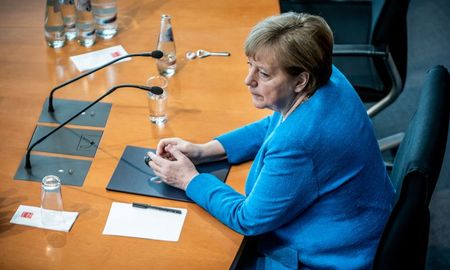G7 nations urged to boost climate funding for poor nations as Merkel says Germany made ‘fair contribution’

Germany and Britain are piling pressure on other G7 nations to boost the funding they provide for climate action in developing countries this decade.
Ahead of this week’s Petersberg Climate Dialogue, climate and development experts and former U.N. chief Ban Ki-moon had urged Germany to commit to doubling its public climate finance by 2025 to an annual €8bn, up from about €4bn now.
But outgoing German Chancellor Angela Merkel said only that Germany’s total climate support – including public and private sources of money – had reached nearly €7.6bn in 2019.
She described that as a “fair contribution” and did not indicate the level of finance Germany would provide beyond 2020.
But she said she agreed with Britain that “we need to look ahead… we need to do more internationally, because the need – particularly in developing countries – is enormous”.
There has been growing anxiety that wealthy governments have so far failed to deliver the $100bn a year they promised to raise for vulnerable countries starting in 2020.
The latest figures from the Organisation for Economic Co-operation and Development show flows of about $79bn in 2018.
Prime Minister Boris Johnson told Thursday’s ministerial dialogue that at the June G7 summit, he hoped to secure a “substantial pile of cash” to help poorer nations start a green industrial revolution and withstand the worsening impacts of climate change.
“We simply must meet our existing commitments on climate finance, that long-overdue $100bn-a-year target, and then we must go further still,” he said by video link.
He noted that Britain – which will also host November’s COP26 climate summit – had already pledged to double the climate finance it will provide over the coming five years to at least £11.6bn for that period.
But the government has been widely criticised for temporarily cutting its broader overseas aid spending, under fiscal pressures from the Covid-19 pandemic.
Merkel said that while industrialised countries faced huge holes in their budgets, they should not shirk their international responsibilities by reducing contributions for development aid, climate protection or multilateral bodies.
The United States said last month it would double its international public climate finance to about $5.7bn a year by 2024.